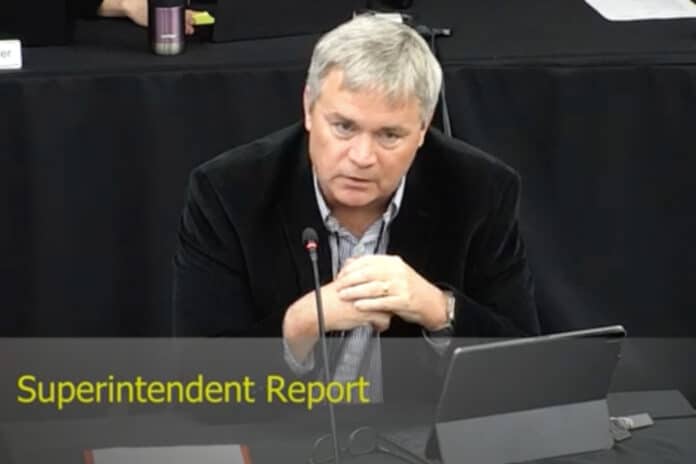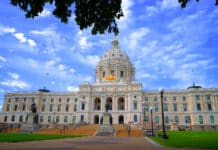
Minnesota’s “one-sided” government is on track to drive many school districts “off a fiscal cliff,” Stillwater Superintendent Dr. Michael Funk told the school board Tuesday night.
“A lot of folks had high hopes that with a united government in place we’d get some things done at the legislature this year. Unfortunately, I think this is one of the potentially most damaging sessions I’ve seen since I’ve been a superintendent and that’s been for quite a while,” Funk said.
According to Funk, a survey was sent out to school districts statewide, eliciting responses from 120 districts that were asked to share the potential financial impact of legislation being considered in St. Paul.
“What I’m showing you today are statewide averages on what these unfunded mandates will cost our school systems and drive many of them, most of them, probably all of them into statutory operating debt or bankruptcy,” Funk said.
He said six proposals in particular could create a funding gap of about $1,000 per student. “This equates to a shortfall for Stillwater of roughly $8.5 million annually moving forward,” he said.
Funk said the proposals include:
- Allowing members of the Teachers Retirement Association to retire with full benefits at age 60 instead of 65
- Setting the minimum wage for non-certified staff at $25 per hour
- Requiring districts to pay 100% of single health insurance premiums and 85% of family health insurance premiums, plus 50% of out-of-pocket maximum costs
- Providing 24 weeks of paid family and medical leave
- Providing six days of earned sick and safe time
- Providing additional teacher prep time
The total cost of these “new unfunded mandates” is $1,675 per student, Funk said. Even with a potential $841 in new revenue per student, most districts will be left with a “huge financial burden.”
“That is the level of activity that is going on with the one-sided government that we have currently at the Capitol. I’ve never seen anything like this,” he said. “We need to reach out to our legislators and stop this before we drive ourselves off a fiscal cliff.”

















